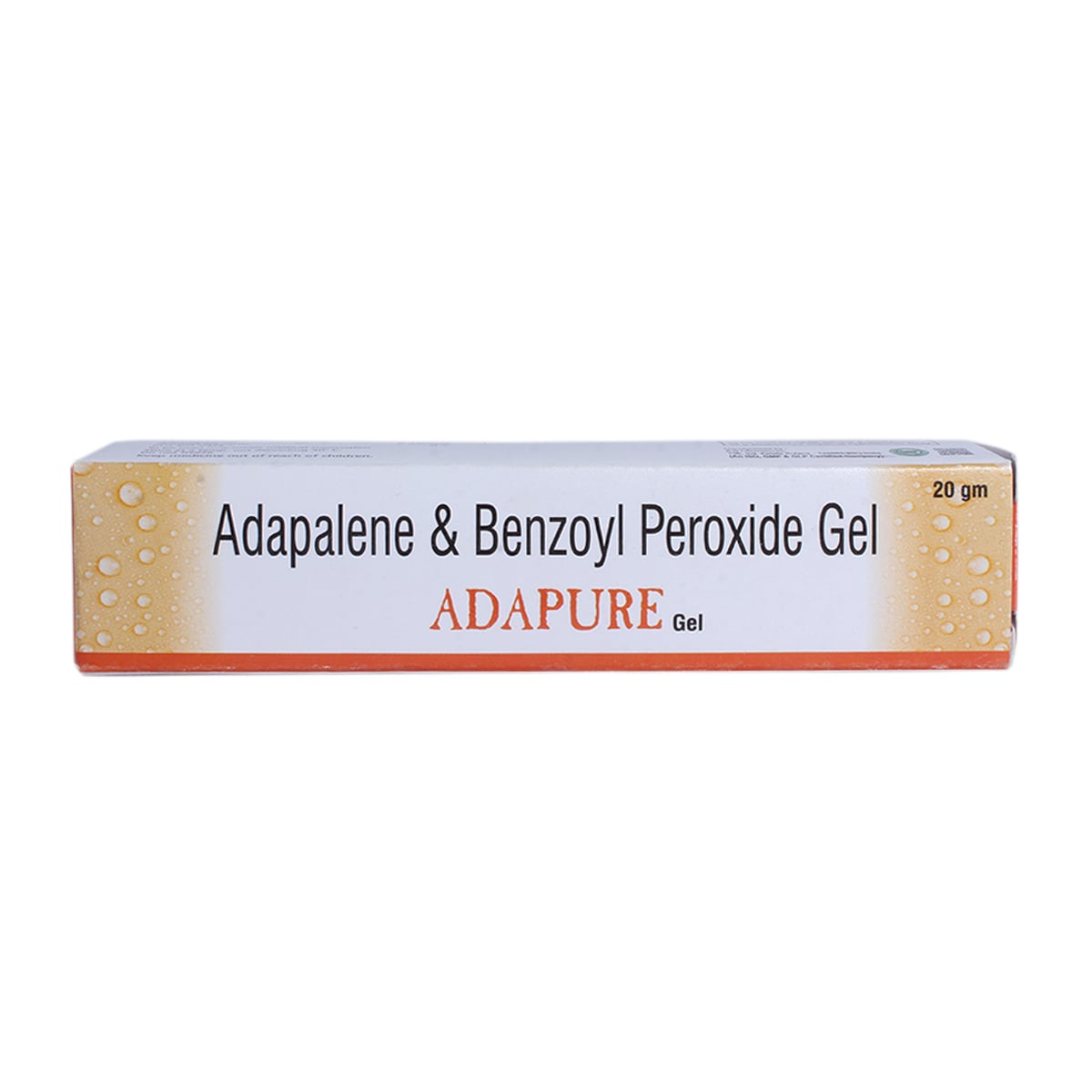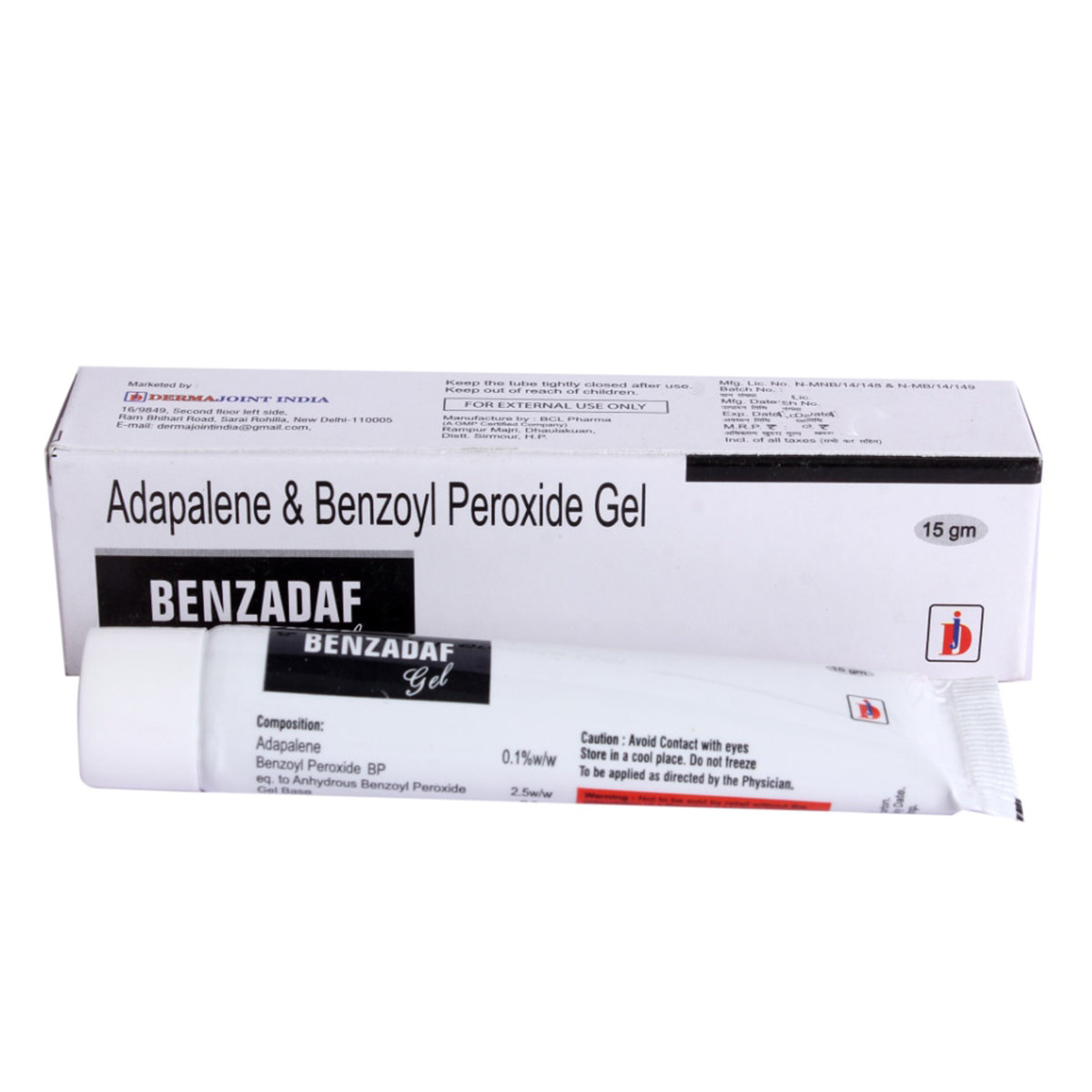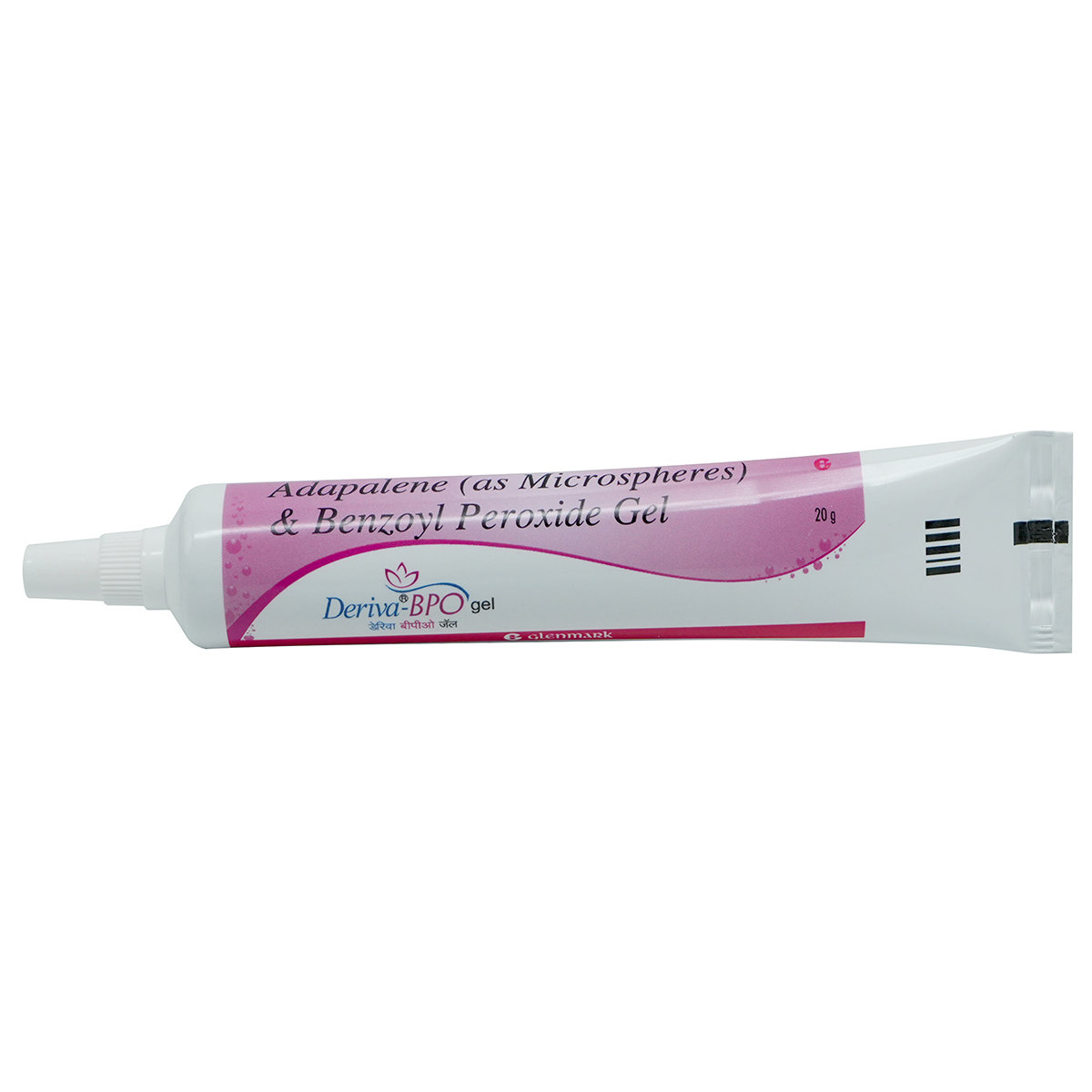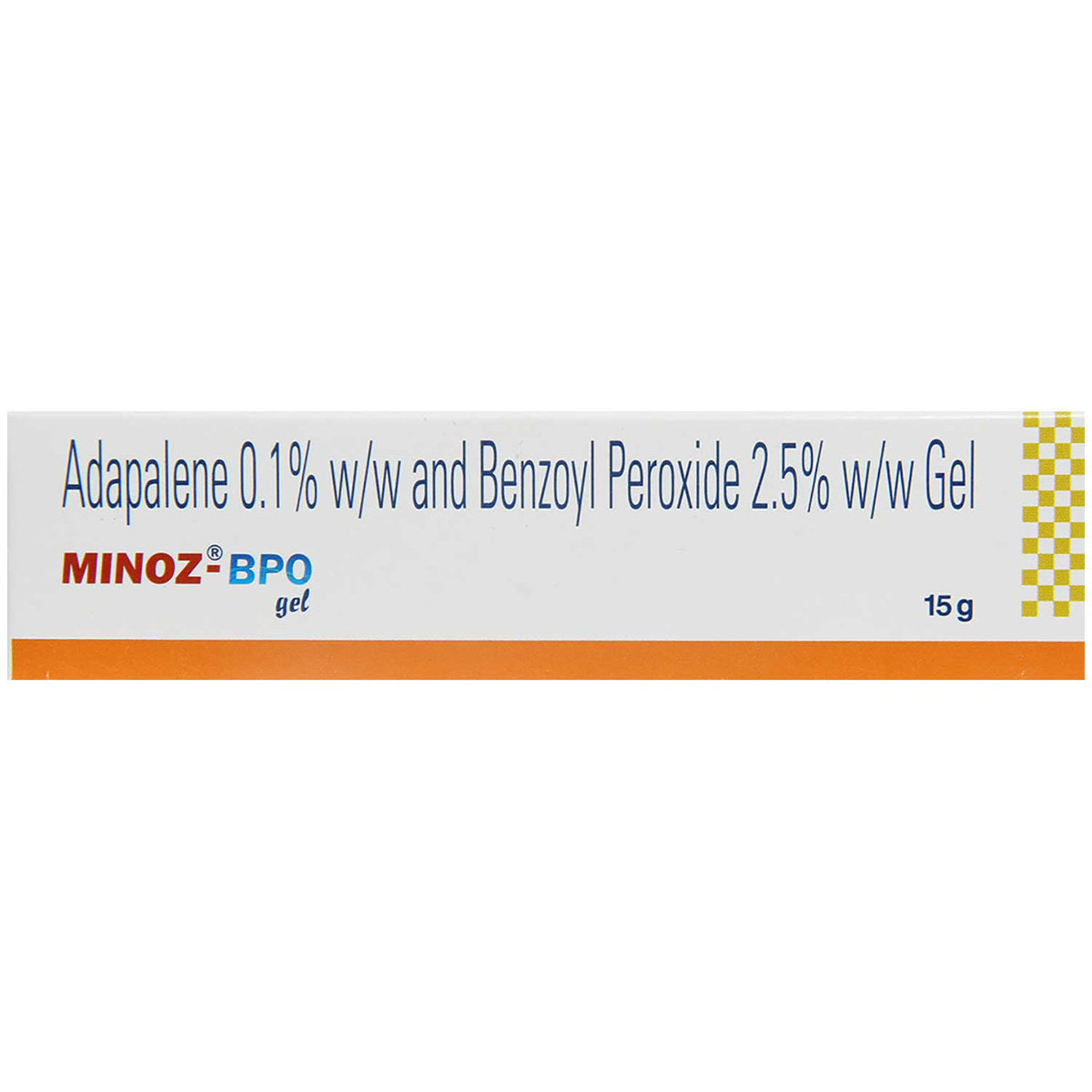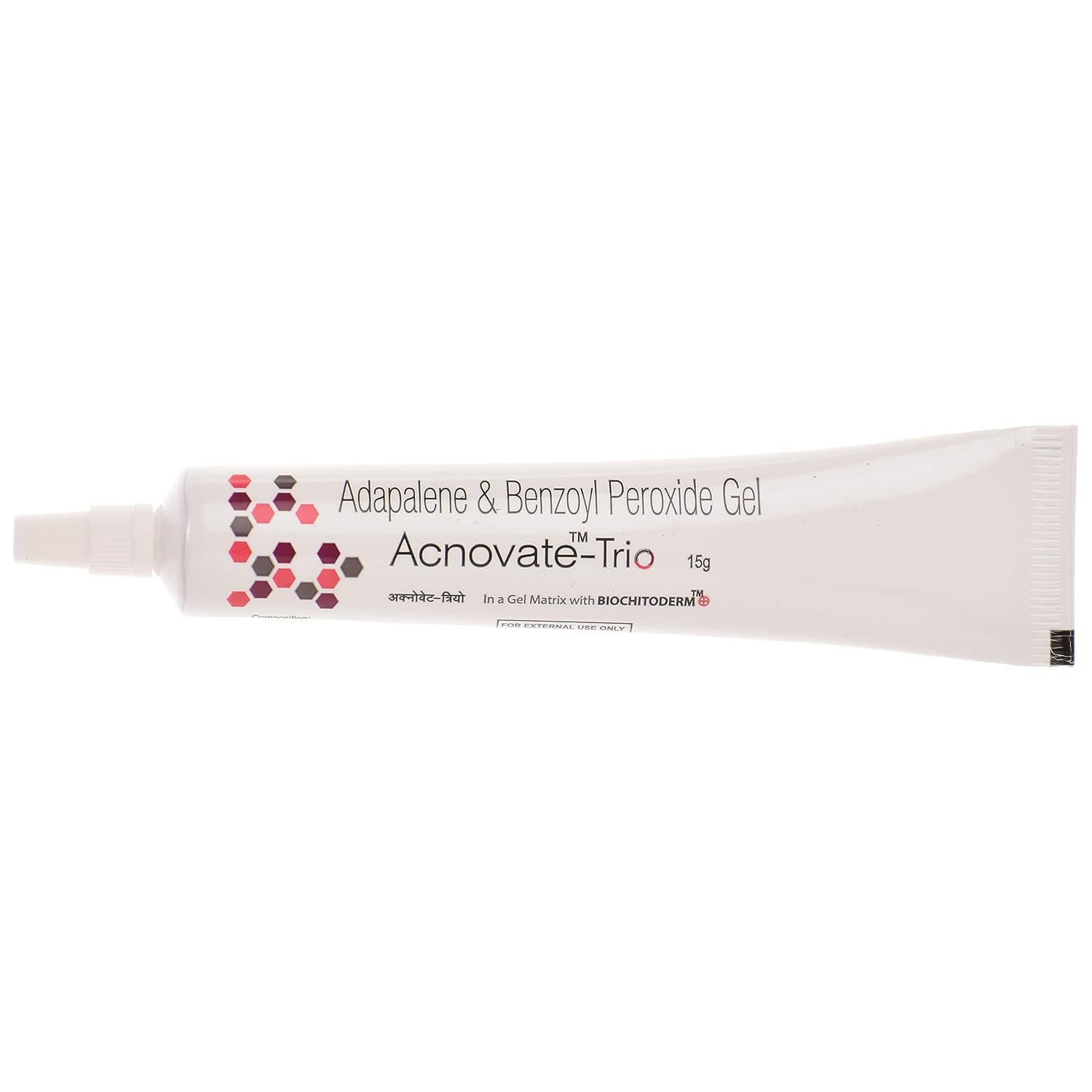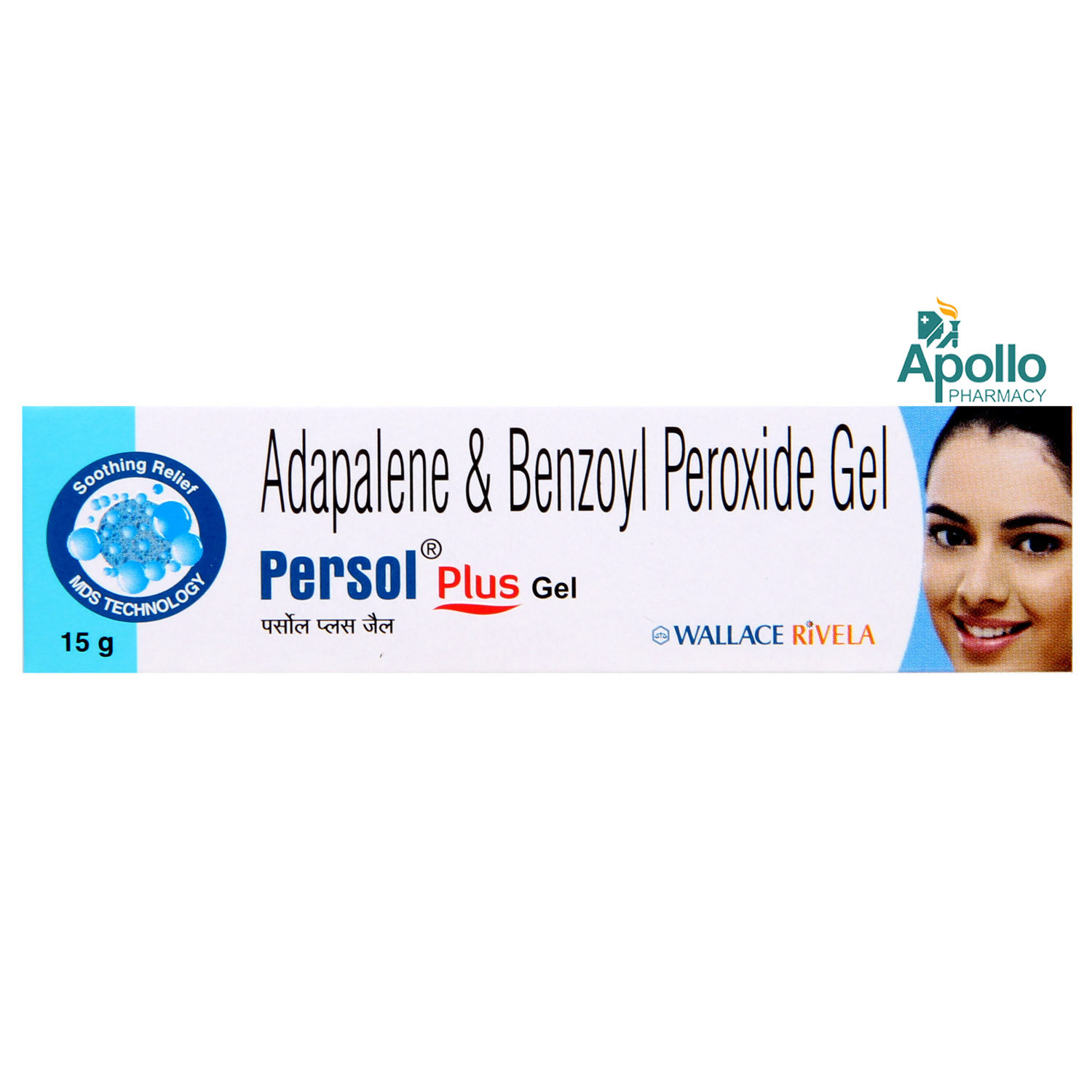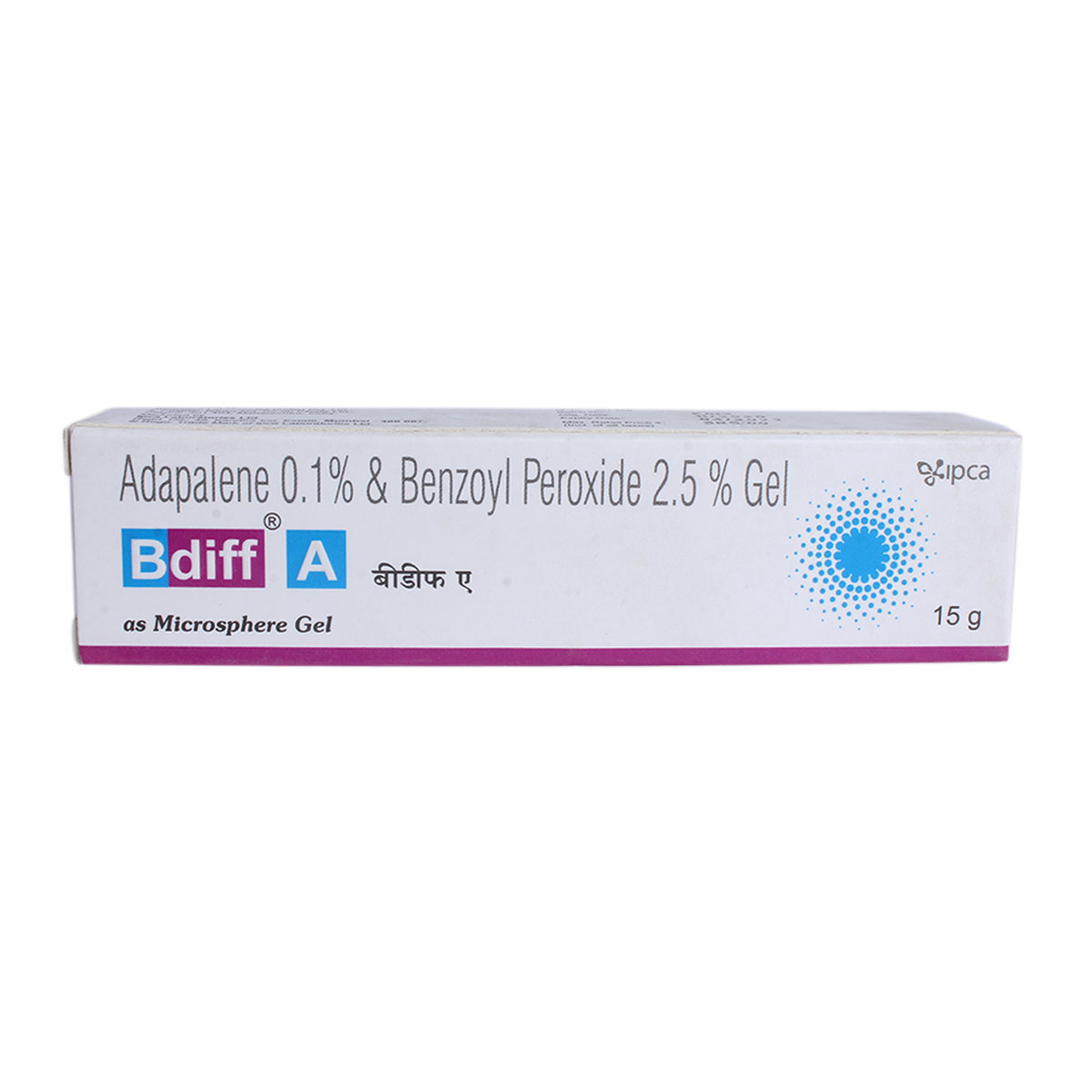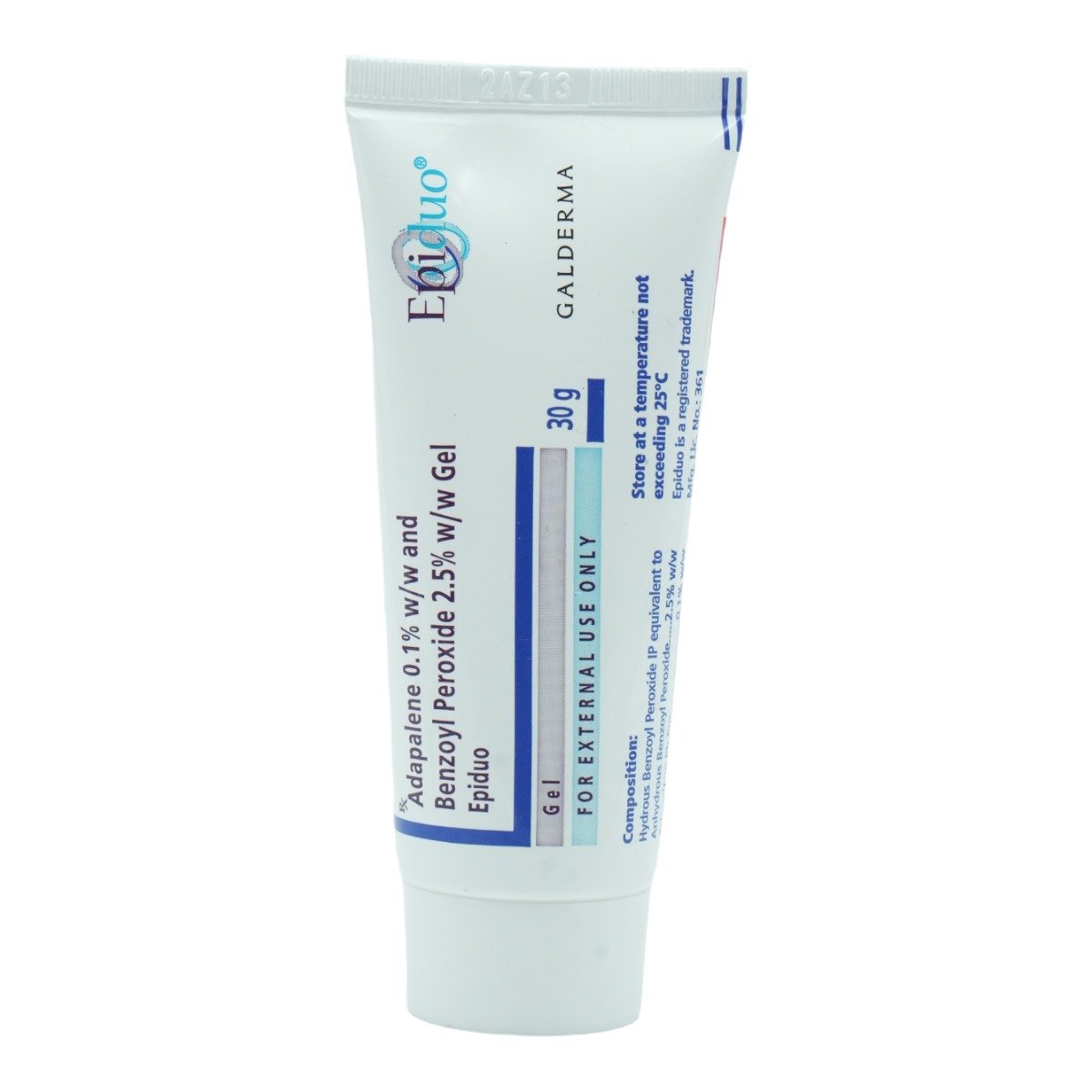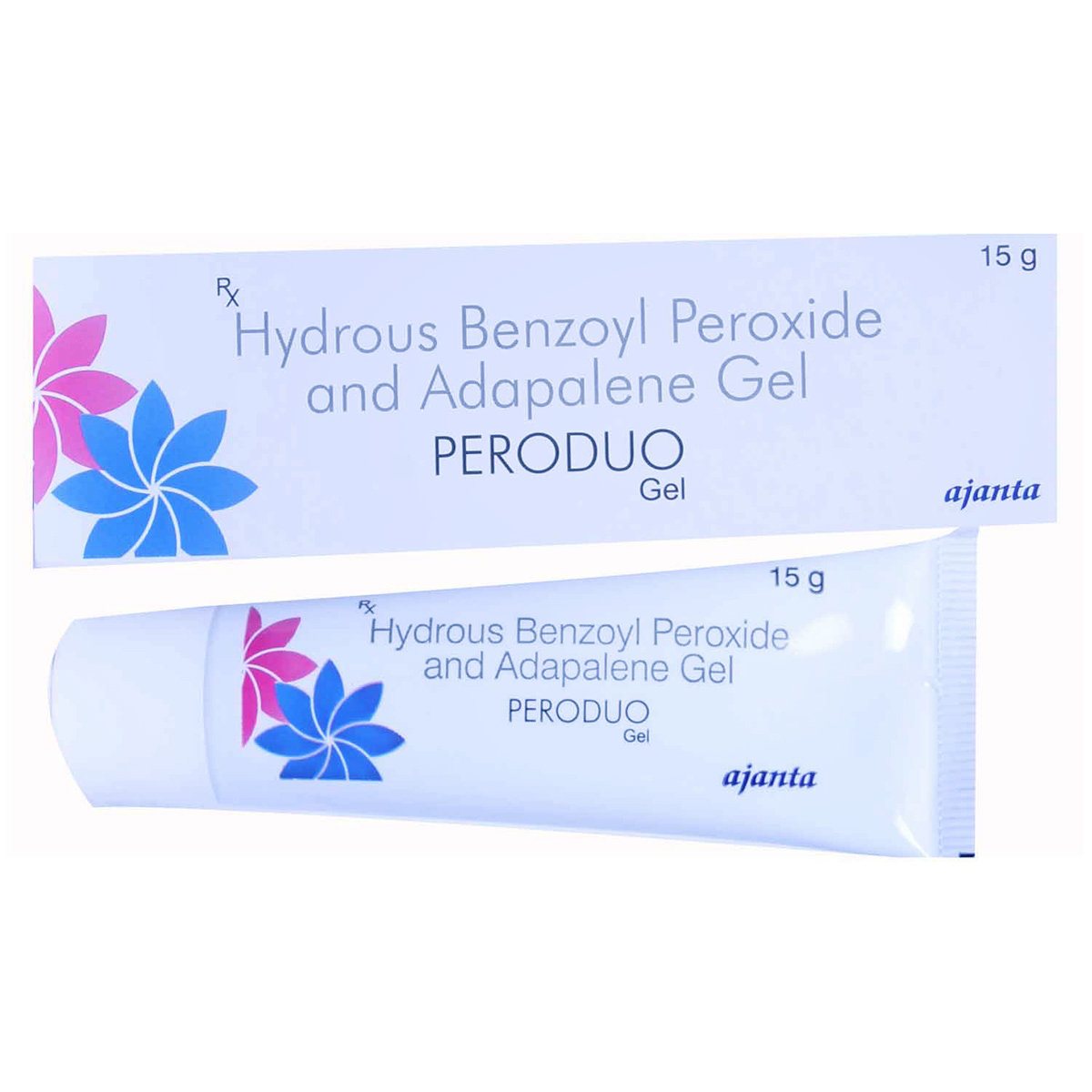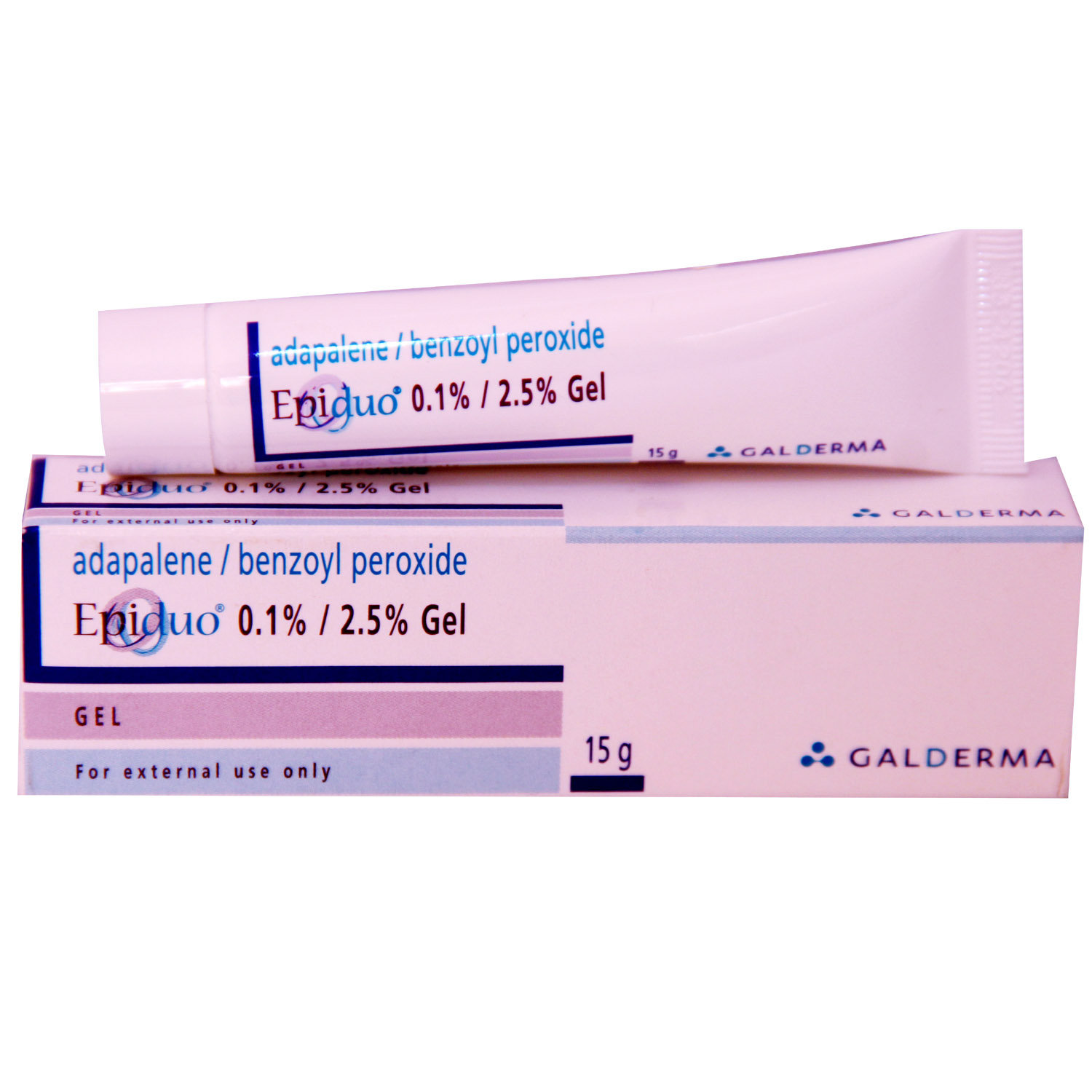- Home
- Acrest Gel
Acrest Gel Substitute
Acrest Gel Substitute
Medicine Composition:
ADAPALENE-0.1%W/W + BENZOYL PEROXIDE-2.5%W/WAll Substitutes & Brand Comparisons
RX
Benad Gel 20 gm
Skinska Pharmaceutica Pvt Ltd
₹195.5
(₹8.8/ 1gm)
54% CHEAPERRX
Rox-ADP Gel 20 gm
Amwill Healthcare Pvt Ltd
₹206
(₹9.28/ 1gm)
52% CHEAPERRX
Adapure Gel 20gm
Iceberg Health Care Pvt Ltd
₹281
(₹12.65/ 1gm)
35% CHEAPERRX
Reticlear Gel 20 gm
Hexadox Pharmaceuticals Pvt Ltd
₹370
(₹16.65/ 1gm)
14% CHEAPERRX
Ab-Next Gel 20gm
Lupin Ltd
₹436
(₹19.62/ 1gm)
RX
Aclair Gel 15 gm
Regalia Pharmaceuticals India Pvt Ltd
₹359
(₹21.54/ 1gm)
10% COSTLIERRX
Benzadaf Gel 15 gm
Dermajoint India
₹365.5
(₹21.93/ 1gm)
12% COSTLIERRX
Deriva-BPO Gel 20 gm
Glenmark Pharmaceuticals Ltd
₹512
(₹23.04/ 1gm)
18% COSTLIERRX
Minoz-BPO Gel 15 gm
Sun Pharmaceutical Industries Ltd
₹421.5
(₹25.29/ 1gm)
29% COSTLIERRX
Acnovate Trio Gel 15 gm
Apex Laboratories Pvt Ltd
₹423
(₹25.38/ 1gm)
30% COSTLIERRX
Persol Plus Gel 15 gm
Wallace Pharmaceuticals Pvt Ltd
₹445
(₹26.7/ 1gm)
36% COSTLIERRX
Bdiff A Gel 15 gm
Ipca Laboratories Ltd
₹454.5
(₹27.27/ 1gm)
39% COSTLIERRX
Epiduo Gel 30 gm
Galderma India Pvt Ltd
₹932.5
(₹27.98/ 1gm)
43% COSTLIERRX
Peroduo Gel 15 gm
Ajanta Pharma Ltd
₹481.5
(₹28.89/ 1gm)
48% COSTLIERRX
Epiduo 0.1%/2.5% Gel 15 gm
Galderma India Pvt Ltd
₹513.5
(₹30.81/ 1gm)
57% COSTLIER

When Should You Consider Switching from Acrest Gel?
Patients may explore substitutes in the following scenarios:
- High monthly cost of Acrest Gel
- Non-availability in local pharmacies
- Generic recommendation by a doctor
- Side effects or better tolerability with alternatives
What to Know Before Switching
Before you switch from Acrest Gel to another medicine, here are some important points to keep in mind:
Same salt, different brands:
Most substitutes contain the same active ingredient - ADAPALENE-0.1%W/W + BENZOYL PEROXIDE-2.5%W/W, but the fillers, coating, or manufacturing quality may vary slightly.
Consult your doctor first:
Even if the salt is the same, your doctor can confirm if the substitute is right for your condition, dosage, and health history.
Watch out for allergies or reactions:
Some people may react differently to certain brands due to inactive ingredients. If you notice any side effects, inform your doctor immediately.
Price ≠ effectiveness:
A lower-priced substitute doesn't mean it's less effective. Many generic medicines work just as well as branded ones.
Check the dosage form and strength:
Always match the substitute’s strength (e.g., 5mg, 10mg) and form (tablet, capsule, syrup) with what your doctor prescribed.
Uses
Acrest Gel is used in the treatment of acne (pimples). The detailed uses of Acrest Gel are as follows:
- Acne Treatment: Acrest Gel is primarily used to treat moderate to severe acne by combining benzoyl peroxide and adapalene, which helps reduce acne lesions.
- Clogged Pores: Acrest Gel works by unclogging pores, helping to prevent the formation of new pimples and blackheads.
- Reducing Inflammation: The anti-inflammatory properties of Acrest Gel help to reduce redness and swelling associated with acne outbreaks.
- Preventing Acne Scarring: Regular use of Acrest Gel can help reduce the chances of acne scarring, promoting clearer skin over time.
- Improving Skin Texture: By promoting cell turnover and exfoliation, Acrest Gel can lead to smoother skin texture and a more even skin tone.
Medicinal Benefits
Acrest Gel is a combination of two drugs, Adapalene and Benzoyl peroxide, used to treat acne (pimples). Adapalene is a retinoid (human-made vitamin A) that loosens the cells on the skin’s surface and unblocks pores by reducing oil production in the skin. Thus, it decreases pimples, spots, whiteheads, and blackheads. Also, it increases the production of new skin cells and helps in the natural exfoliation (removal of dead skin cells) of the outer layers of the skin. Adapalene has an anti-inflammatory effect and thus reduces irritation and soreness. Benzoyl peroxide is a keratolytic agent that breaks down a protein known as keratin (that forms part of skin structure), removes dead skin cells, and softens skin. Additionally, Benzoyl peroxide possesses antibacterial properties and kills bacteria that cause acne.
FAQs
The substitutes of Acrest Gel contain the same active salt(s) - ADAPALENE-0.1%W/W + BENZOYL PEROXIDE-2.5%W/W. However, they may differ in price, manufacturing quality, and inactive ingredients. Speak to your doctor to find a suitable option.
Switching to a generic substitute medicine in the place of Acrest Gel is often possible if it has the same salt, strength, and dosage form. But always check with your doctor before making any changes to your medication.
Generics versions of Acrest Gel are typically more affordable because they don’t include the original brand's research, development, and marketing costs. They contain the same active ingredient and are approved for safety and effectiveness.
Most people don’t notice any difference. However, some may react to different fillers or coatings. If you notice any unusual symptoms after switching, consult your doctor.
Make sure the new medicine has the same active salt, strength, dosage form. Always confirm the change with your doctor or pharmacist.
Substitutes of Acrest Gel meet the same safety and efficacy standards as Acrest Gel, but small differences in absorption or formulation can exist. A doctor can help you choose the right one for your needs.
Yes. Substitutes of Acrest Gel may vary in color, size, or shape due to differences in manufacturing and branding, but this does not affect how they work.
Yes, it’s generally safe to switch between multiple substitutes of Acrest Gel if they have the same salt and strength. However, always inform your doctor so they can monitor how your body responds.
Yes, many people safely use substitutes of Acrest Gel for long-term treatment. Just ensure it’s done under medical supervision.
If your symptoms stay under control or lab results remain stable, the substitute for Acrest Gel is likely working well. Regular follow-ups with your doctor are important.
Absolutely. Even with the same salt, small differences can affect how your body responds when switching from Acrest Gel to its substitute. Always consult your doctor before switching.
Acrest Gel is used to treat acne, a common skin condition that occurs when hair follicles are blocked with dead skin cells and oil, causing pimples, whiteheads, and blackheads.
Acrest Gel contains Adapalene and Benzoyl peroxide. Adapalene is a retinoid (man-made vitamin A) that loosens the cells on the skin’s surface and unblocks pores by reducing the production of oil in the skin. Thereby, decreases pimples, spots, whiteheads and blackheads. Benzoyl peroxide is a keratolytic agent that works by breaking down a protein known as keratin (that forms part of skin structure) and removes dead skin cells and softens skin. Additionally, Benzoyl peroxide possesses antibacterial properties and kills bacteria that causes acne.
Acrest Gel may cause photosensitivity (increased skin sensitivity to sunlight) in the treated areas. Therefore, avoid or limit exposure to sunlight and sunlamps. You are advised to use sunscreen and wear protective clothing while going out to prevent sunburn.
No, Acrest Gel is not recommended for eczema (itchy, cracked, swollen or rough skin) patients as it may cause severe irritation. Therefore, if you are suffering from eczema, inform your doctor before using Acrest Gel.
Yes, Acrest Gel may cause skin irritation as a side effect. However, if the irritation persists or worsens, stop using Acrest Gel and consult a doctor.
Yes, Acrest Gel may bleach coloured fabrics or hair. Therefore, avoid contact of Acrest Gel with hair or fabrics and thoroughly wash your hands after using Acrest Gel.
Yes, Acrest Gel may cause dryness of the skin. You can use a moisturizer while using Acrest Gel to prevent dry skin. However, do not apply Acrest Gel and moisturizer at the same time as it may reduce the effectiveness of Acrest Gel. Please consult a doctor before using other products with Acrest Gel.
Acrest Gel may cause side effects such as skin irritation, skin redness, scaling, dry skin, or burning sensation of the skin. If these side effects persist or worsen, please consult your doctor.
When you buy moisturizers, cosmetics, or other skincare products, look for non-comedogenic or non-acnegenic. Otherwise, these products may worsen your acne.
You should use Acrest Gel for as long as it is advised by your doctor for best results. Do not stop using Acrest Gel on your own even if your skin looks clearer to help prevent future breakouts. With continued use, Acrest Gel will continue to clear inflammation and redness caused by acne; prevent blackheads and clogged pores and as a result, restore the skin’s texture and tone.
Store Acrest Gel at room temperature. Protect from light. Replace the cap tightly after use. Keep it out of reach of children.
Acrest Gel should not be used to treat a single pimple as it is not a spot treatment. Apply Acrest Gel to the entire face. Use it once a day to help treat your acne.
It may take up to 2-3 weeks for your symptoms to improve and may take some time to show significant results. Use Acrest Gel as advised and let your doctor know if your symptoms do not improve or worsen.
Wash your hands before and after applying Acrest Gel. Before using it, wash the affected area with water. Apply a small amount of Acrest Gel as a thin layer and gently rub on the clean and dry affected area of the skin at night before going to bed. Acrest Gel is only for external use. If you are using Acrest Gel on your face, avoid contact with eyes, nostrils and lips as it may cause irritation. In case Acrest Gel comes in contact with these areas accidentally, rinse with water thoroughly.
You are recommended to avoid products with strong irritant or drying effects. However, please consult your doctor before using other skincare products with Acrest Gel.
If you have sensitive skin or conditions like eczema, use Acrest Gel with caution. If you experience severe irritation, consult your doctor immediately.
It is advised to consult a doctor before using Acrest Gel if you are pregnant.
Buy best Dermatology products by
Glenmark Pharmaceuticals Ltd
Canixa Life Sciences Pvt Ltd
Klm Laboratories Pvt Ltd
Sun Pharmaceutical Industries Ltd
Cipla Ltd
Intas Pharmaceuticals Ltd
Abbott India Ltd
Ajanta Pharma Ltd
East West Pharma India Pvt Ltd
Dr Reddy's Laboratories Ltd
Brinton Pharmaceuticals Ltd
Leeford Healthcare Ltd
Alkem Laboratories Ltd
Skinocean Pharmaceuticals
Amwill Healthcare Pvt Ltd
Atopic laboratories Pvt Ltd
Hegde & Hegde Pharmaceutica Llp
Torrent Pharmaceuticals Ltd
Palsons Derma Pvt Ltd
Dermacia Healthcare
Oaknet Healthcare Pvt Ltd
Ipca Laboratories Ltd
Micro Labs Ltd
Med Manor Organics Pvt Ltd
Yaher Pharma
Dermocare Laboratories Gujarat Llp
Apex Laboratories Pvt Ltd
Talent India Pvt Ltd
Kivi Labs Ltd
Mankind Pharma Pvt Ltd
Systopic Laboratories Pvt Ltd
Menarini India Pvt Ltd
Nemus Pharmaceuticals Pvt Ltd
Ethinext Pharma
Zydus Cadila
Regaliz Medicare Ltd
Inex Medicaments Pvt Ltd
Mohrish Pharmaceuticals Pvt Ltd
Hbc Dermiza Healthcare Pvt Ltd
Lupin Ltd
Mrhm Pharma Pvt Ltd
Zydus Healthcare Ltd
Eskon Pharma
GlaxoSmithKline Pharmaceuticals Ltd
La Pristine Bioceuticals Pvt Ltd
Praise Pharma
Wallace Pharmaceuticals Pvt Ltd
Newtrimed Healthcare Pvt Ltd
Biocute Life Care
Glowderma Lab Pvt Ltd
Macleods Pharmaceuticals Ltd
Sol Derma Pharmaceuticals Pvt Ltd
Aurel Biolife
Ethicare Remedies Pvt Ltd
Galcare Pharmaceuticals Pvt Ltd
Kaizen Drugs Pvt Ltd
Percos India Pvt Ltd
Rockmed Pharma Pvt Ltd
Elder Pharmaceuticals Ltd
Rely On Pharmaceuticals
Wockhardt Ltd
Zee Laboratories Ltd
Karlin Pharmaceuticals & Exports Pvt Ltd
Alniche Life Sciences Pvt Ltd
La Med Healthcare Pvt Ltd
Prism Life Sciences Ltd
Yap Bioceuticals
Connote Healthcare
P and P Dermaceuticals Pvt Ltd
Adonis Laboratories Pvt Ltd
Indiabulls Pharmaceuticals Pvt Ltd
Lyra Laboratories Pvt Ltd
Akumentis Healthcare Ltd
Albatross Healthcare Pvt Ltd
Apple Therapeutics Pvt Ltd
Arka Vital Science Pvt Ltd
Gary Pharmaceuticals Pvt Ltd
Rhine Biogenics Pvt Ltd
Yash Pharma Laboratories Pvt Ltd
Dermajoint India
Leogard Pharmaceuticals Pvt Ltd
Dermarex HealthCare India Pvt Ltd
Iceberg Health Care Pvt Ltd
Capital Pharma
Eumedica Pharamceuticals
FDC Ltd
Glasier Wellness Inc
Grace Derma Healthcare Pvt Ltd
Oziel Pharmaceuticals Pvt Ltd
Salve Pharmaceuticals Pvt Ltd
West Coast Pharmaceuticals Pvt Ltd
Entod Pharmaceuticals Ltd
Jenburkt Pharmaceuticals Ltd
Medcure Organics Pvt Ltd
Olcare Laboratories Pvt Ltd
Anhox Healthcare Pvt Ltd
Bioswizz Pharmaceuticals Ltd
Indchemie Health Specialities Pvt Ltd
Omniceutics Healthcare Pvt Ltd
Skinska Pharmaceutica Pvt Ltd
BODY CREAM
Body Lotion
Soap
Face Cream
Shampoo
Sun Screen
Face Gel
Face Wash
HAIR SOLUTION
BODY GEL
Face Serum
Hair Lotion
Hair Serum
Dusting Powder
ANTISEPTIC
Body Wash
Face Lotion
FACE CLEANSER
Body Spray
Foot Cream
Conditioner
Eye Cream
Eye Gel
Cleanser
Hair Cream
Hair Gel
Hair Spray
FUNGAL INFECTION
Hair Oil
Sanitizer
Specialty Supplements
Face Mask
Skin Ointment
Lip Balm
Capsule
Eye Serum
Intimate Wash
Hand Cream
Facial Spray
Face Toner
Hand Wash
SPECIALITY SUPPLEMENT
Tablet
BABY SUNSCREEN
Body Butter
Body Scrub
EYE SOLUTION
FACIAL WIPE
Gargle
Hair Color
Hair Mask
Hair Tonic
Intimate Spray
Lip Serum
VITAMIN D


